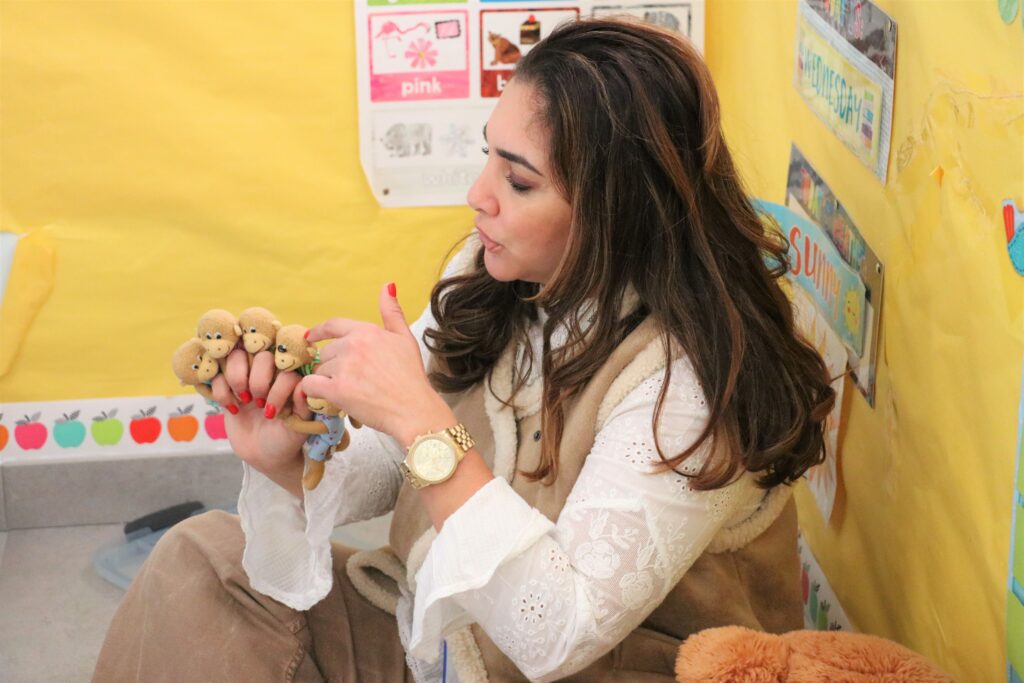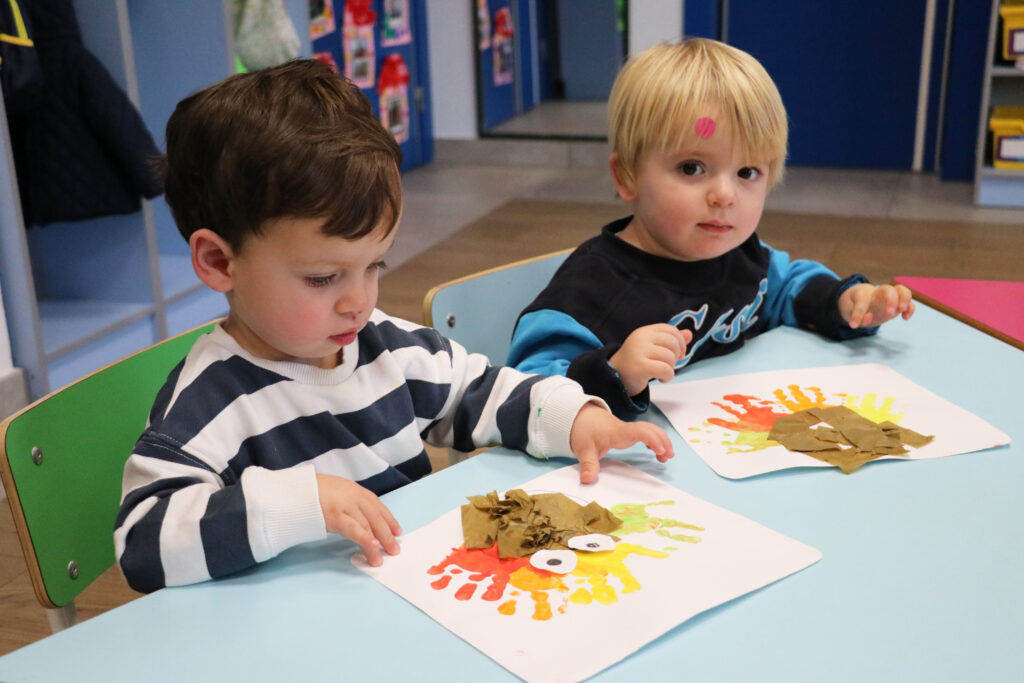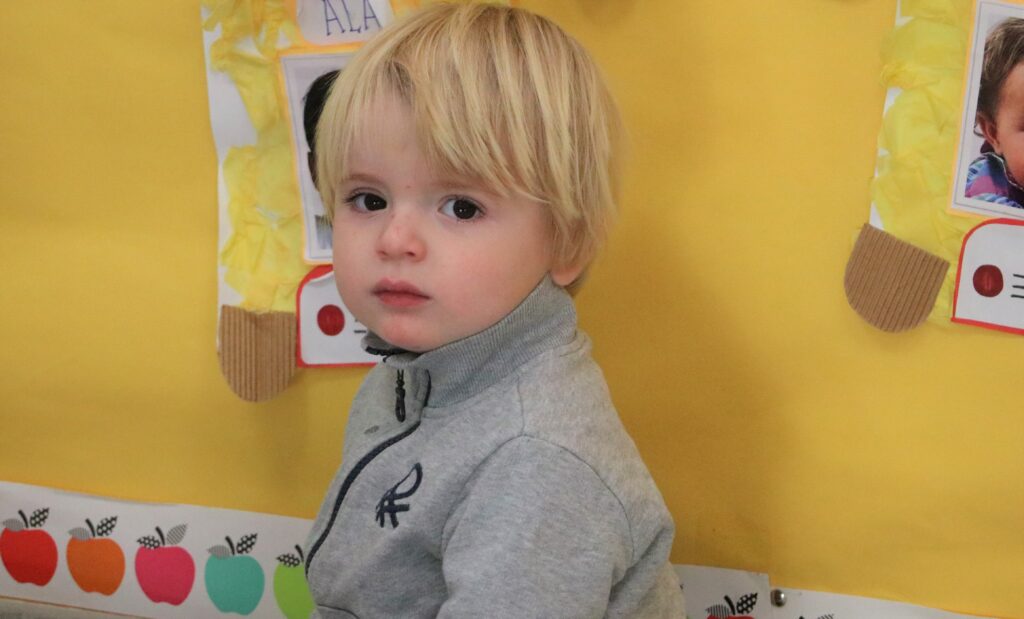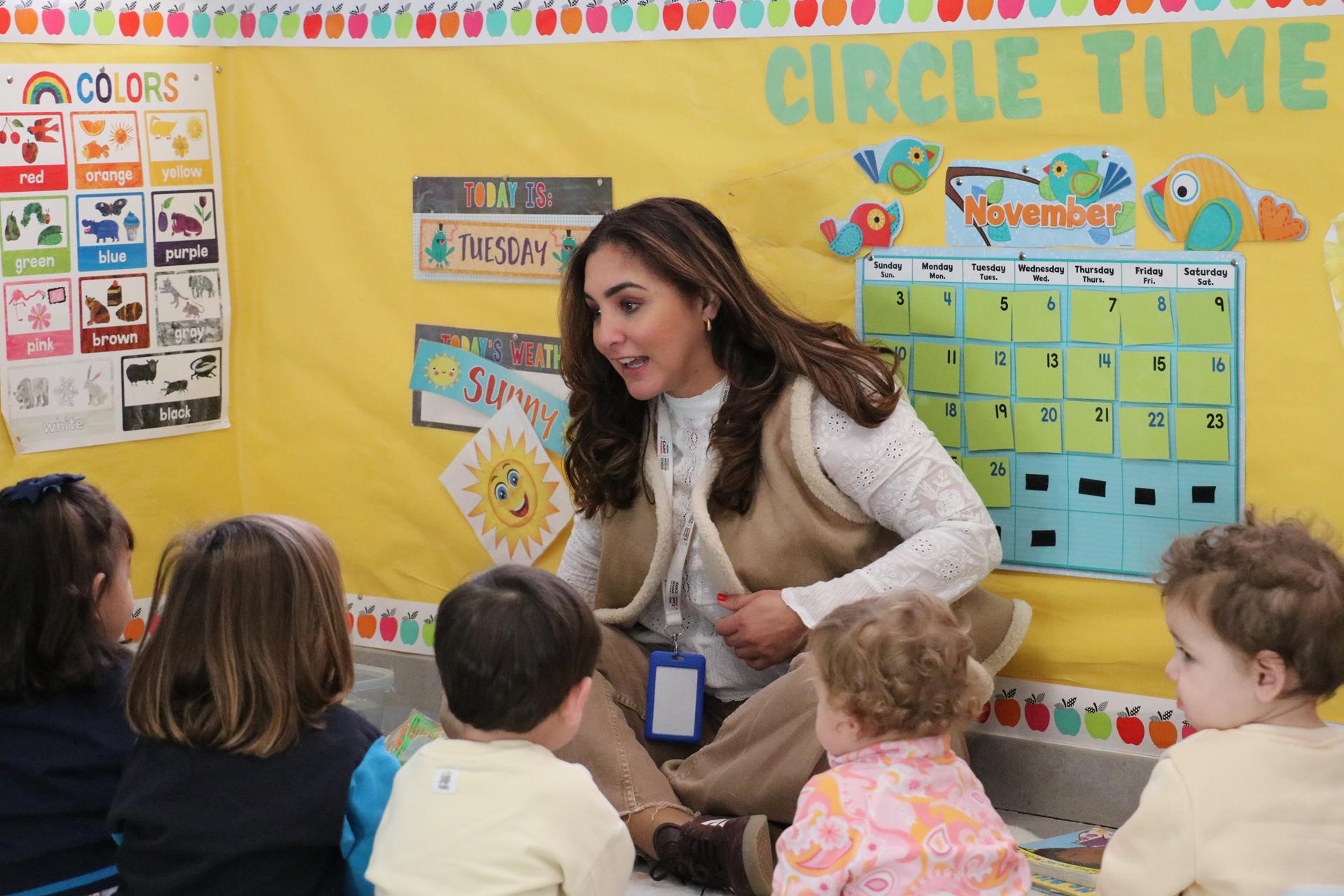What is Cognitive Development in Babies?
When we talk about cognitive development in babies, we are referring to the processes by which babies acquire knowledge, problem-solving skills, and begin to understand their environment. In the first years of life, their brain is in a phase of great plasticity, which means that it is highly receptive to stimuli from the environment. This allows babies to learn quickly, from recognizing faces and sounds to developing language and motor skills.
According to experts, stimulating cognitive development in babies is essential to lay the foundations for their future learning, scientific research has shown that experiences in the first years of life have a significant impact on the structuring of the brain and the acquisition of cognitive skills.
Ways to Enhance Cognitive Development in Babies
1. Establish a reading and conversation routine
2. Sensory stimulation
3. Games that encourage problem-solving
From the moment they are born, babies begin to learn through what they hear. Talking to them about what they are seeing or doing helps develop their verbal comprehension. Reading stories to them, even if they do not yet understand the words, allows them to associate sounds with objects, creating a basis for language.
Through the repetition of sounds and words, babies begin to associate sounds with images and concepts, which provides them with a solid foundation for language. This type of interaction favors the acquisition of vocabulary and the ability of children to form sentences and express ideas as cognitive development progresses in babies.
Babies learn primarily through their senses, as their brain is in a stage of high plasticity that allows them to respond to and absorb sensory information from their environment.
Offering them a variety of sensory experiences is crucial for them to better understand the world around them. Playing with different textures, colors and sounds not only provides cognitive stimulation in babies, but also contributes to the development of their motor skills. For example, simple activities such as touching soft or rough surfaces, playing with water, or exploring sand allow them to experience tactile sensations that help them differentiate materials, shapes, and temperatures.
A key breakthrough occurs around 8 months with object permanence. This means that babies begin to understand that objects still exist even when they are not visible. This discovery seems simple, but it implies a profound change in his way of thinking.
This achievement in cognitive development in infants marks the beginning of greater logical thinking and memory skills. For example, if you hide a toy under a blanket, the baby will actively try to reach for it, demonstrating their newfound ability to understand abstract concepts.

4. Outdoor Exploration
Contact with nature is essential for cognitive development in babies, as it offers them a rich variety of visual, auditory, and tactile stimuli. Exploring outdoors improves your ability to process information and supports your emotional and physical well-being, reducing stress and improving your attention. In addition, outdoor activities strengthen motor skills, such as crawling or walking, and encourage social interaction with other children, promoting cooperation and empathy
The importance of comprehensive education for cognitive development in babies
The comprehensive approach to child development advocates addressing all areas of a baby’s growth: cognitive, emotional, physical, and social. This model recognizes that all these dimensions are interconnected and essential for balanced development. Through educational activities that encourage learning, emotion management, and social interactions, children develop skills that allow them to face challenges in all areas of their lives. In addition, it is considered vital to provide a healthy physical environment, including proper nutrition and motor activities. This approach ensures a solid foundation for long-term development.
As experts in the field explain, early childhood education plays a fundamental role in the integral development of children, and one of the most important aspects it addresses is cognitive development. Cognitive development in babies refers to the acquisition and use of mental skills such as thinking, memory, attention, and reasoning.

Benefits of a comprehensive education for proper cognitive development in babies
1. Strengthening Basic Cognitive Skills
A well-rounded education stimulates the brain through varied experiences that develop skills such as memory, attention, and reasoning. Hands-on activities, such as sensory play or creative challenges, allow children to experiment and discover, strengthening their problem-solving skills.
In addition, by working on the construction of basic concepts such as numbers, letters or patterns, children develop cognitive skills that are the basis for more complex learning in the future.
2. Stimulating critical thinking and natural curiosity
One of the most prominent benefits of well-rounded education is that it encourages critical thinking from an early age. In an environment where questions and answers are promoted, children learn to analyze situations, look for solutions, and think logically. This critical capacity allows them not only to adapt better to new situations, but also to be more autonomous in their learning process.
3. Creativity and symbolic thinking
As children grow, creativity and imagination become essential components of cognitive development. Comprehensive education encourages creativity through activities such as art, music, role-playing, and storytelling. These activities not only allow children to express themselves, but also facilitate the development of symbolic thinking
4) Language and communication development
Language is a fundamental cognitive tool for the correct cognitive development of babies. Through comprehensive education, language development is promoted from a very early age. Activities such as reading aloud, singing songs, telling stories, and having conversations with children allow them to expand their vocabulary and improve their communication skills.
Not only does language make it easier to express thoughts and feelings, but it also helps children organize and sort through the information they receive. In addition, learning to listen and express ideas clearly strengthens the ability to understand and reflect, key skills for cognitive development and academic success in the future.

Promoting Cognitive Development at Casvi Tres Cantos
At Casvi International American School, Casvi Tres Cantos School, we have all educational stages from 0 years to 18 years old, with special attention to each stage. In nursery and preschool Education, we specifically work to promote sensory activities for cognitive development in babies. These activities stimulate the senses, enhancing cognitive, motor, and social skills essential for their growth. Games that include manipulating objects, textures, and sounds help children improve their concentration, coordination, and problem-solving skills. In addition, they promote socialization and emotional learning, essential for their integral development.
Learn more about Nursery. Visit us!
Find out more about our Preschool, Kindergartenand Nursery. We offer a unique educational approach in English so that your children are bilingual from the very beginning. In addition. Our goal is to provide a comprehensive education that promotes cognitive development in infants.
Visit us and know more about our Nursery at Casvi International American School!

